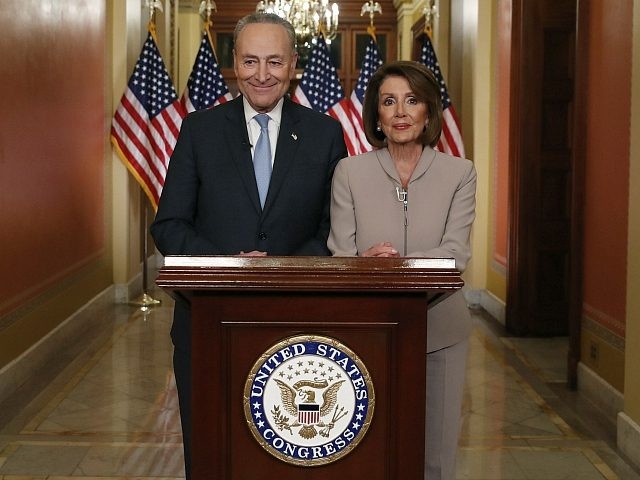Democrats are heading into the 2020 election facing a huge dilemma–how to respond to China’s retaliatory tariffs while maintaining their stance of resistance to virtually everything coming out of the Trump White House.
China made this challenge even tougher on Monday when it said it would hike tariffs on around $60 billion of U.S. goods, largely agricultural products such as soy and peanuts, that President Donald Trump has promised to counter with emergency aid to farmers.
From the Trump administration perspective, the choice of helping American farmers is easy. The tariffs produce tens of billions of dollars of revenue for the U.S. government, more than enough to offset any lost sales due to China’s tariffs on the roughly $24 billion of U.S. farm products it purchased in the pre-tariff era. As a result, the extra-spending does not increase the budget deficit. Even if new borrowing were required, long-term interest rates are very low–with the yield on 10-year Treasuries sitting near 2.4 percent–minimizing the fiscal impact.
What’s more, Trump administration officials see aid to farmers to offset Chinese tariffs as denying China the ability to choose specific Americans to target for economic harm. Providing aid creates a defensive wall around farmers, staving off predatory Chinese actions, in the view of many inside the White House.
Aid to farmers, however, would likely have to be approved by Congress. And that’s when it becomes a challenge to Democrats. Would House Democrats approve a farm-aid package proposed by the Trump administration?
New York Times columnist Paul Krugman thinks Democrats in the House might not, recently asking, “is there any reason to believe that the Pelosi House would help Trump here?”
https://twitter.com/paulkrugman/status/1127961368680960000
Trump administration officials think there is a very good reason the House Democrats would vote for the spending: to help American farmers.
While there may be a hardcore of anti-Trump #resist at all costs faction in the Democratic party, allowing China to inflict harm on American farmers in order to deny Trump a “win” would likely be a politically costly move for Democrats, solidifying Trump’s hold on the farm vote and endangering House seats in rural districts. Voting against farm aid would make it harder to blame Trump for the costs to farmers from the trade war.
Some Democratic leaders have already signalled approval for the Trump administration’s tough stance with China.
“Hang tough on China, President @realDonaldTrump,” Senate Minority Leader Chuck Schumer wrote on Twitter after Trump announced he would hike the China tarrifs. “Don’t back down. Strength is the only way to win with China.”
“The president is correct in asserting what we have to do with China,” House Speaker Nancy Pelosi said last week. She added that her biggest problem is that Trump’s tactics are “empowering them to hurt our people.” That last phrase would be difficult to square with a vote against a program designed to minimize China’s ability to harm U.S. farmers.
Pelosi has been a China hawk for years. When Trump announced his first tariffs on Chinese goods in March of 2018, Pelosi’s response was to call for even more action to crack down on China.
“The United States must take strong, smart and strategic action against China’s brazenly unfair trade policies. Yet, today’s announcement is merely a start, and the Trump Administration must do much more to fight for American workers and products,” Pelosi said.

COMMENTS
Please let us know if you're having issues with commenting.